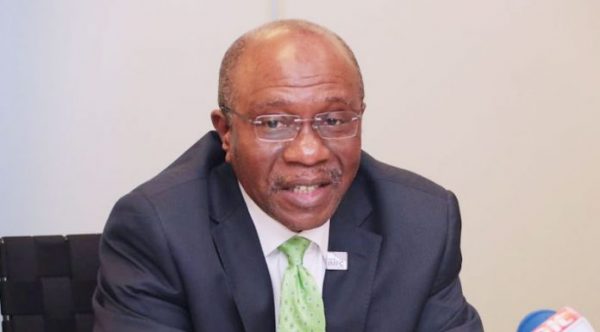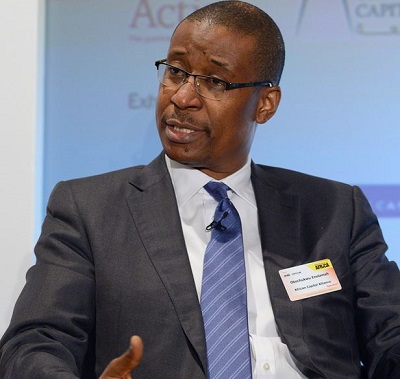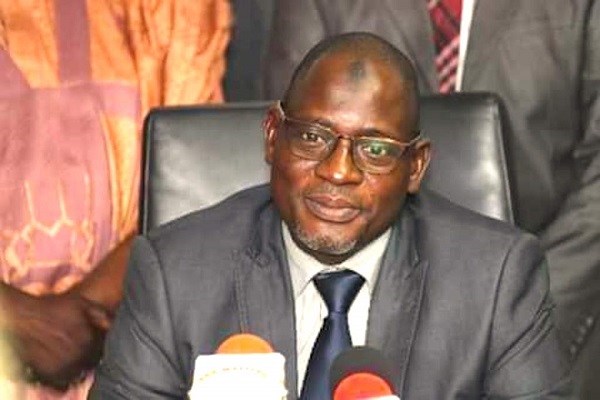CBN mulls fresh capital base for Nigeria’s banks

The disclosure yesterday of plans by Central Bank of Nigeria (CBN) Governor Godwin Emefiele to pursue, among other objectives, the recapitalisation of the banking sector, have triggered suspicions of distress in the industry.
Pundits, who pursue this line of argument believe banks’ poor balance sheet, even as they declare huge profits, is responsible for their refusal to lend to the real sector, especially the small and medium enterprises (SMEs), mostly regarded as the engine of economic growth.
Emefiele who unveiled his monetary policies for the next five years, specifically targeted price, exchange and inflation rates stability, to buoy economic activities through enhanced lending. He specifically said recapitalisation would also boost the ranking of Nigerian banks in the global financial market.
He said: “In the next five years, we intend to pursue a programme of recapitalising the banking industry so as to position Nigerian banks among the top 500 in the world. Banks will therefore be required to maintain higher level of capital, as well as liquid assets in order to reduce the impact of an economic crisis on the financial system.”
However, financial services operators were quick to deny the possibility of distress in the sector, saying that banks assets base and international ratings indicate that the sector is still stable and viable.
The CBN governor, who was reappointed for a second term of five years, who based his argument for recapitalisation on current economic realities occasioned by high inflation and exchange rates, recalled that it was Governor Chukwuma Soludo in 2004, who did the last recapitalisation moving the capital base from N2 billion to N25 billion.
He continued: “I must commend those efforts because they resulted in positioning Nigerian banks not only in Africa but also being among the top banks in the world in terms of capitalisation and also helped to increase and strengthen the banks’ capacity to take on large ticket transactions and those are some of the things we badly need today. If you relate it N25 billion in 2004, exchange rate which was about N100/$, N25 billion is almost about $200 million today if you relate N25 billion at N360; you can see that it is substantially lower than $75 million. So, what we are trying to say is that the capitalisation has weakened quite substantially. There is a need for us to say that it is time to recapitalise Nigerian banks again. It is a policy thrust, which will be discussed at the Committee of Governors meeting, and of course, the framework for recapitalisation of Nigerian banks will be unfolded for the whole world to know.”
But dismissing the suspicion of distress in the sector, the President, Chartered Institute of Bankers of Nigeria (CIBN), Dr Uche Olowu, argued that recapitalisation is not an admission of distress.
Olowu told The media that in view of current realities where Nigerian banks are also players in both the regional and international markets, they need to shore up their capital base in order to remain competitive.
Besides, he noted, exposures to some sectors, like power during the privatisation and the petroleum downstream industry, eroded banks capital in the past, and therefore needed to be shored up.
Emefiele had said the power sector would also witness another intervention, though in a different manner to enhance electricity supply to drive industrialisation in Nigeria.
Also allaying the fear of distress, the Deputy Managing Director, Afrinvest (West Africa) Limited, Victor Ndubuaku, in a telephone interview with media source, insisted like Olowu that global industry ratings indicate that Nigerian banks have strong asset base.
He said: “The industry does not have a capital problem, that much is clear; even if you base it on any of the global matrices, whether it is Basel 2 or Basel 3, the requirement for capital adequacy is strictly sacrosanct.”
Although no threshold or time frame for the recapitalisation have been prescribed, both the Chairman, Abuja Chapter of CIBN, Prof. Uche Uwaleke, and former Deputy Governor, Economic Policy, CBN, Dr. Obadiah Mailafia, suggested a new minimum of N100billion for banks wishing to play in the international market, up from the current N50billion.
In Uwaleke’s opinion, “Now, the financial liquidity of the Nigerian capital market can accommodate the needed capital, while banks that may not be able to raise the capital can take the option of a merger like what the Diamond and Access banks have just done.” He added that “It is better to have 10 very strong banks in Nigeria that can withstand economic shocks, lend better to the society, particularly the real sector, than have 24 banks that can’t add any value to the economy,”
Mailafia however called for caution in pursuing the recapitalisation, saying: “Let us do it in a systematic holistic manner to avoid chaos, because I know that about three to four banks are facing systemic challenges, which will soon become manifest. So we should encourage mergers and acquisitions to have a smooth exercise.”
Ndubuaku also believes that the recapitalisation should also be properly thought through . He noted that “the problem with Nigeria is really productivity challenge, this is informed by lack of infrastructure, with a government balance sheet that is already stressed, with about 50 per cent of its income spent paying debts. So we need to pursue more investments.”
While opinions may differ on the motive behind the proposed banks’ recapitalisation, Emefiele further listed his major priorities to include: “First, preserve domestic macroeconomic and financial stability; second, foster the development of a robust payments system infrastructure that will increase access to finance for all Nigerians, thereby raising the financial inclusion rate in the country. Third, continue to work with the Deposit Money Banks to improve access to credit for not only small holder farmers and MSMEs, but also consumer credit, and mortgage facilities for bank customers. Our intervention support shall also be extended to our youth population who possess entrepreneurship skills in the creative industry.”
He equally promised to encourage Deposit Money Banks to direct more focus on supporting the education sector, grow external reserves; and support economic diversification efforts through various intervention programmes in the agriculture and manufacturing sectors.
He said further: “With the rise in digital payments and cyber security threats, we will develop a robust mechanism that will help ensure that the necessary safeguards are put in place by banks and financial institutions to protect against loss of data, fraud and cyber incursions in their respective system.”
On the power sector intervention by the apex bank, he expressed regret that the investors have not lived up to expectation, nevertheless reassuring that because of the importance of the sector to Nigeria’s industrialisation vision, the apex bank would still intervene but in a different manner.
According to Emefiele: “Our intervention in the power sector is continuing, we have done some interventions, the N213 billion which was meant to settle some of those obligations and also the N700 billion. I must confess that we are not too happy with the way the whole power sector arrangement is unfolding, but in the course of time, we shall provide our advice as to the best ways to really tame this power issue. But I want to say that yes part of the challenges that businesses face is power but what I am saying is that we should try to harness the innate strengths in us not to allow our not accessing power to derail us from our own shared objectives that we must work hard, create jobs and improve supply and stabilise prices in Nigeria. Don’t get me wrong, we would continue to intervene in that sector but it should not be an excuse to let down our guards to result in a situation where there will be unemployment and hopelessness in our country,” he clarified .
Also, as part of the new vision, he said the CBN under his leadership intends to sustain “the pace of consultations with major stakeholders, particularly, with the organised private sector as this would act as a barometer for measuring the progress being made in the implementation of their policies, adding that their assessment of the outcome of the deliberations so far in the past indicated that with concerted efforts, the challenges facing the country are easily surmountable.”
On the collaboration with the public sector, he said: “Working closely with our fiscal authorities, we pledge to target a double digit growth by the next five years and at the CBN, we commit to working assiduously to bringing down inflation to single digit; while accelerating the rate of employment.”
He continued: “We would also strive to continue to sustain a positive interest rate regime to the delight of our important stakeholders. Monetary policy measures embarked upon by the CBN will be geared towards containing inflationary pressures and supporting improved productivity in the agricultural and manufacturing sectors. Working with other stakeholders, we intend to bring down the cost of food items, which have considerable weight in the Consumer Price Index basket. Our ultimate objective is to anchor the public’s inflation expectation at single digits in the medium to long run. We believe a low and stable inflationary environment is essential to the growth of our economy because it will help support long- term planning by individuals and businesses.
It will also help to lower interest rates charged by banks to businesses thereby facilitating improved access to credit, and a corresponding growth in output and employment.”
On exchange rate stability, he also offered the following commitment :” We will continue to operate a managed float exchange rate regime in order to reduce the impact which continuous volatility in the exchange rate could have on our economy. We will support measures that will increase and diversify Nigeria’s exports base and ultimately help in shoring up our reserves. While the dynamics of global trade continue to evolve in advanced economies, Nigeria remains committed to a free trade regime that is mutually beneficial; but, particularly aimed at supporting our domestic industries and creating jobs on a mass scale for Nigerians. We intend to aggressively implement our N500bn facility aimed at supporting the growth of our non-oil exports, which will help to improve non-oil export earnings.”







